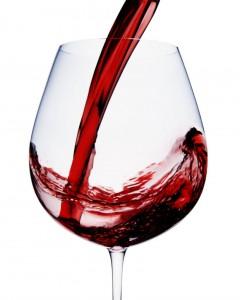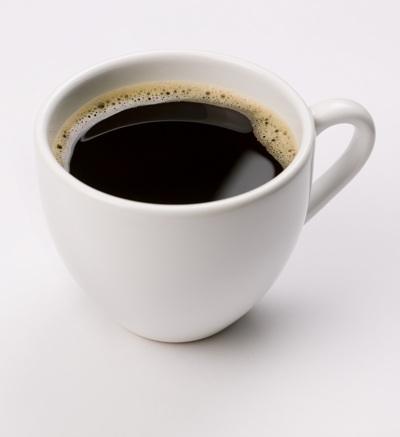A great step towards better sleep is eating balanced, nutritious meals and snacks evenly spaced throughout the day. Research has found that certain nutrients can affect sleep, from how easy it is to fall asleep at a reasonable hour to the quality of rest we get throughout the night. Equally important to all this is what impact certain foods and drinks have on our beloved heart rate variability (HRV).
Alcohol
 Many of us may be tempted to unwind with a glass of wine, but numerous studies suggest alcohol before bed is a sure-fire way to disturb your precious slumber which is inclusive enjoying a beer or glass of wine after a tough day. A study in 2011, monitored HRV and sleep quality after alcohol consumption in university aged healthy males. There was a control group, a low dose group (0.5g/kg) and a high dose group (1g/kg). As you can imagine, there was a dose related effect of alcohol on both HRV and sleep. The high dose group saw the lowest HRV values, highest RHR and poorest sleep quality. The low dose group also saw reduced HRV, increased RHR and reduced sleep quality compared to control.
Many of us may be tempted to unwind with a glass of wine, but numerous studies suggest alcohol before bed is a sure-fire way to disturb your precious slumber which is inclusive enjoying a beer or glass of wine after a tough day. A study in 2011, monitored HRV and sleep quality after alcohol consumption in university aged healthy males. There was a control group, a low dose group (0.5g/kg) and a high dose group (1g/kg). As you can imagine, there was a dose related effect of alcohol on both HRV and sleep. The high dose group saw the lowest HRV values, highest RHR and poorest sleep quality. The low dose group also saw reduced HRV, increased RHR and reduced sleep quality compared to control.
A study of the acute effects of alcohol on heart rate variability (HRV) during sleep has found that alcohol significantly interferes with the restorative functions of sleep. Bau et al. investigated the effects of 60g of ethanol ingestion on HRV in young men. HRV was measured before and during the 17 hours following ingestion. Compared to the control group, the ethanol group saw a decrease in HRV that persisted for 10 hours. Even a couple of glasses of wine can have an affect on your HRV! Similarly, a study in 2009 investigated the dose-related effects that red wine, ethanol and water have on HRV in a mixed group of healthy folks. Essentially, one drink of either red wine or ethanol had no effect. However, after the second drink HR increased and HRV decreased.
The studies mentioned here carry a similar theme, not only does alcohol have a disruptive affect on your sleep but also an adverse effect on your HRV. Do you notice periods where your HRV and sleep patterns are good correlate with not drinking alcohol?
Caffeine
 You hear it all the time, when it comes to sleep: don’t drink caffeine too late in the day. It’s among the most common sleep tips and one we have covered here at ithlete. Caffeine with its well documented stimulant effects is disruptive to good sleep. And with the emerging popularity of energy drinks and other caffeine heavy beverages and snacks, it’s not difficult to wind up consuming caffeine throughout the day, even if you don’t reach for that cup of coffee.
You hear it all the time, when it comes to sleep: don’t drink caffeine too late in the day. It’s among the most common sleep tips and one we have covered here at ithlete. Caffeine with its well documented stimulant effects is disruptive to good sleep. And with the emerging popularity of energy drinks and other caffeine heavy beverages and snacks, it’s not difficult to wind up consuming caffeine throughout the day, even if you don’t reach for that cup of coffee.
So how late in the day is too late in the day to be consuming caffeine? Well if you’re having trouble sleeping, it’s time to skip that cup of coffee after 4pm. A poll from Sleep in America shows that 43% of Americans are “very likely” to brew a cup of coffee to help them push through a sleepy afternoon. A late afternoon caffeine boost can last anywhere from 3 to 12 hours, making it the reason you cannot quite manage your 8 hours of sleep.
We know from previous posts that sleep and HRV are intrinsically linked, good sleep promoted good HRV. So how does caffeine’s detrimental affect on sleep alter your HRV? Well caffeine is present in a wide variety of foods and beverages, and is considered to be the most widely consumed naturally occurring drug in the world. . So this is leading to almost a double effect, caffeine will hit your HRV and have an adverse effect on sleep, preventing your body recovering from the day’s physical, mental and chemical (caffeine!) stress.
A study found that modest amounts of caffeine do not reveal negative nor positive effects on HRV within the first 90 minutes after consuming caffeine in young and healthy habitual caffeine consumers. This suggests the odd cup of coffee may not be a problem, but keep an eye on your total caffeine intake for an easy sleep and HRV boost!
Food
Throughout this month we’ve thoroughly explored how sleep affects your HRV and why therefore you’d be wise to do anything you can to improve your sleep. However one area we have not covered when giving tips for improving sleep is the relationship with food.
Food is a prerequisite to a good night’s snooze, for the simple reason that you won’t be hungry when you go to bed. Stomach rumblings lead to disturbed sleep and the strong likelihood that you’ll be awake in the early hours of the morning with the urge to raid the fridge. Have you heard of the phrase ‘eat to sleep’? Well recent research is actually beginning to prove that the food we put in our bodies directly affects how we sleep.
For example, researchers at Taiwan’s Taipei Medical University studied the effects of kiwi consumption on sleep. They found that eating kiwi on a daily basis was linked to substantial improvements to both sleep quality quantity. Not a fan of the kiwi? Luckily there are plenty of other foods contain naturally occurring substances that bring on sleep. According to the sleep council, foods high in protein are great for sleep as they contain tryptophan. Ever heard if it? Well it is the rarest of the amino acids, and is found in foods like turkey, steak, chicken and pumpkin seeds, and to a lesser extent in peanuts, sunflower seeds, beans and milk. Tryptophan is particularly important for our sleep because when it reaches the brain, it converts it to serotonin. At nighttime, serotonin undergoes two metabolic changes to become melatonin, the chemical that induces sleep. So in a nutshell food that contains tryptophan is exceptionally good for your 8 hours of perfect slumber!

Do sleeping pills effect your HRV? I am having a sleeping problem because of pain from overdoing a new strength training routine :-( Had an HRV of 102 this morning, after taking Ivedal. But my legs are still extremely sore, stiff & swollen.
Hi Sonja. They probably do – sedatives may reduce sympathetic activity, thereby artificially inflating your HRV.
Please look after yourself, and dont overdo any new routine!